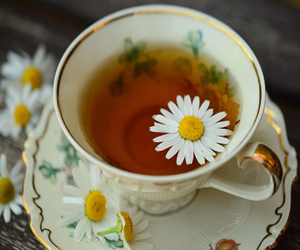



In today's fast-paced world, well-being and inner peace have become elusive treasures, often overshadowed by the hustle and bustle of daily life. Stress and anxiety have become common companions for many individuals, taking a toll on their mental and physical health. However, there is a timeless practice that has emerged as a powerful tool to combat these challenges and cultivate a deep sense of well-being and inner peace: mindfulness.
Mindfulness, rooted in ancient traditions, is a practice that encourages individuals to be fully present in the moment, aware of their thoughts and feelings without judgment. It involves paying attention to your experiences, whether they are pleasant or uncomfortable, with a sense of curiosity and acceptance. When integrated into one's life, mindfulness can have a profound impact on well-being and inner peace.
One of the primary benefits of mindfulness is its ability to reduce stress. Mindful meditation and breathing techniques can help individuals manage the overwhelming stressors of modern life. By focusing on the present moment, individuals can break free from the cycle of worry about the future or dwelling on the past. This mental shift allows them to experience a sense of calm and relaxation, reducing their stress levels.
Furthermore, mindfulness promotes mental clarity and emotional balance. In a world filled with distractions, our minds can become cluttered, making it difficult to concentrate and find inner peace. Mindfulness helps in decluttering the mind and provides a clear space for focused thinking. It also allows individuals to observe their emotions without reacting impulsively, fostering emotional stability and resilience.
Meditation, a core component of mindfulness, is a practice that enables individuals to delve deep into their inner selves. Through regular meditation, people can develop a better understanding of themselves and their thought patterns. This self-discovery is instrumental in cultivating inner peace. By recognizing their thought patterns and emotional responses, individuals can make conscious choices about how they react to various situations, leading to a greater sense of control and inner harmony.
Mindfulness is not limited to the individual; it also extends to the way we connect with the world. By being present and fully engaged in our interactions and surroundings, we foster a deeper connection with the people and environment around us. This connection promotes empathy, compassion, and a sense of belonging, which are integral to overall well-being and inner peace.
Incorporating mindfulness into your daily life doesn't require a significant time commitment. Even just a few minutes of mindful breathing or meditation each day can yield substantial benefits. It's a practice that can be seamlessly integrated into your routine, whether it's during your morning routine, a lunch break, or before bedtime.
The fast-paced world we live in need not deprive us of well-being and inner peace. Mindfulness offers a path to reconnect with ourselves and the world around us, promoting emotional balance, stress reduction, and a sense of inner peace. By embracing this practice and making it a part of your daily life, you can embark on a journey towards a more harmonious and fulfilling existence. So, take a deep breath, be present in this moment, and embark on your path to well-being and inner peace through mindfulness.
A Journey To Better Health
 2. Assess Your Reasons: Determine the driving factors behind your decision to transition to a gluten-free lifestyle. Whether it's due to a medical condition like celiac disease or non-celiac gluten sensitivity, or a choice for improved well-being, having clarity about your motivation can help you stay committed to the change.
2. Assess Your Reasons: Determine the driving factors behind your decision to transition to a gluten-free lifestyle. Whether it's due to a medical condition like celiac disease or non-celiac gluten sensitivity, or a choice for improved well-being, having clarity about your motivation can help you stay committed to the change.
3. Consult A Healthcare Professional: If you suspect you have a gluten-related medical condition, consult a healthcare professional for testing and diagnosis. They can provide guidance on the necessity of a gluten-free lifestyle and any specific dietary restrictions.
4. Read Labels Carefully: Effective label reading is essential for identifying gluten-free foods. Look for products that are explicitly labeled as "gluten-free." Also, educate yourself about potential hidden sources of gluten in ingredient lists.
5. Embrace Naturally Gluten-Free Foods: Naturally gluten-free foods include fruits, vegetables, lean proteins, and gluten-free grains like rice and quinoa. These items form the foundation of a nutritious gluten-free diet.
6. Stock Your Kitchen: Ensure your kitchen is well-stocked with gluten-free essentials. This includes gluten-free grains, gluten-free flours for baking, gluten-free pasta, and a variety of gluten-free snacks.
7. Experiment With Recipes: Transitioning to a gluten-free lifestyle provides an opportunity to explore new recipes and culinary techniques.
A Harmonious Journey To Well-Being
 Mental And Emotional Health
Mental And Emotional Health
Cultivating inner peace is a powerful antidote to the stress and anxiety that often plague our lives. By practicing mindfulness, meditation, and self-awareness, we can gain control over our thoughts and emotions. This allows us to respond to life's challenges with greater resilience and composure. It's a vital aspect of holistic health that nurtures our mental and emotional well-being.
Physical Health
The mind and body are interconnected, and the state of your mind has a direct impact on your physical health. Chronic stress and emotional turmoil can lead to physical ailments, ranging from headaches to more serious conditions. By achieving inner peace, you can reduce the physical toll that stress and negativity take on your body. This results in improved overall health and well-being.
Spiritual Connection
Inner peace also plays a significant role in nurturing your spiritual connection. It can deepen your sense of purpose and connection to something greater than yourself. This spirituality provides a wellspring of inner strength and resilience when facing life's challenges.
Practices For Inner Peace
Several practices can help you on your journey to inner peace and holistic health:
Meditation: Regular meditation practice is a powerful tool to quiet the mind and find inner peace.
Mindfulness: Living in the present moment without judgment is a key aspect of finding inner peace.
 One of the primary benefits of aromatherapy is its ability to improve physical well-being. Essential oils can address various physical issues, from reducing pain and inflammation to promoting better sleep. Oils like lavender and chamomile have proven to be effective in relaxation, which can alleviate physical tension. Eucalyptus and tea tree oils are well-known for their potential to support respiratory health. By integrating these oils into massages, baths, or diffusers, you can enhance your overall physical health in a holistic manner.
One of the primary benefits of aromatherapy is its ability to improve physical well-being. Essential oils can address various physical issues, from reducing pain and inflammation to promoting better sleep. Oils like lavender and chamomile have proven to be effective in relaxation, which can alleviate physical tension. Eucalyptus and tea tree oils are well-known for their potential to support respiratory health. By integrating these oils into massages, baths, or diffusers, you can enhance your overall physical health in a holistic manner.
Emotional Well-Being
Aromatherapy is renowned for its impact on emotional well-being. Scents can have a profound influence on our emotions and mood. Essential oils like citrus, rose, and ylang-ylang can uplift the spirits, reduce anxiety, and foster emotional balance. By inhaling these fragrances or using them in aromatic baths, individuals can experience a positive shift in their emotional state. Aromatherapy empowers us to manage and improve our emotional health holistically.
Mental Well-Being
A clear and focused mind is essential for holistic well-being. Aromatherapy can aid in enhancing mental clarity, reducing stress, and improving concentration. Oils like peppermint, rosemary, and lemon are well-suited to boost cognitive function. Diffusing these oils during work or study sessions can create a mental environment that supports well-being.
The Holistic Approach
Holistic well-being involves addressing all facets of our lives: physical, emotional, and mental. Aromatherapy offers a comprehensive solution that recognizes the interconnectedness of these elements. By using essential oils in various applications, such as massage, inhalation, or as part of relaxation rituals, individuals can embark on a holistic journey to achieve a more balanced and harmonious life.






 Chamomile: Chamomile is perhaps one of the most well-known herbs for stress relief. Its gentle, soothing qualities can help calm the mind and relax the body. Chamomile tea is a popular choice, but it's also available in the form of supplements or essential oils.
Chamomile: Chamomile is perhaps one of the most well-known herbs for stress relief. Its gentle, soothing qualities can help calm the mind and relax the body. Chamomile tea is a popular choice, but it's also available in the form of supplements or essential oils.
Lavender: Lavender's delightful aroma is not just pleasant; it has calming properties that can reduce anxiety and stress. You can use lavender essential oil in a diffuser, add a few drops to your bath, or even apply it topically.
Valerian Root: Valerian root is known for its sedative effects and is often used to improve sleep quality. Better sleep can significantly reduce stress. It's available as a supplement or in herbal tea blends.
Ashwagandha: Ashwagandha is an adaptogenic herb that can help the body better manage stress. It supports the adrenal glands and promotes a sense of calm and relaxation.
Passionflower: Passionflower is a traditional remedy for anxiety and nervousness. It can help relax the mind and ease tension.
Rhodiola: Rhodiola is another adaptogenic herb that can enhance the body's response to stress. It may also improve mental and physical performance during stressful periods.
Ginseng: Ginseng is an adaptogen that can improve the body's resilience to stress. It's available in different forms, such as Asian ginseng or Siberian ginseng.
Lemon Balm: Lemon balm has a mild sedative effect and can promote relaxation. It's often consumed as a tea or used as an essential oil.
Kava Kava: Kava kava is known for its calming and anxiety-reducing effects. It's often used to alleviate symptoms of generalized anxiety disorder and is available as a supplement.
 Heart Health: Cardiovascular health is crucial for aging gracefully. Superfoods like salmon, rich in heart-healthy omega-3 fatty acids, can help lower the risk of heart disease. Dark leafy greens like kale and spinach provide essential nutrients that support heart health.
Heart Health: Cardiovascular health is crucial for aging gracefully. Superfoods like salmon, rich in heart-healthy omega-3 fatty acids, can help lower the risk of heart disease. Dark leafy greens like kale and spinach provide essential nutrients that support heart health.
Bone Strength: As we age, bone density tends to decrease, making us more susceptible to fractures. Superfoods like dairy products, fortified with calcium and vitamin D, as well as broccoli, which is rich in both calcium and vitamin K, can help maintain strong bones.
Skin And Beauty: Superfoods are not just about inner health; they can also enhance your outward appearance. Antioxidant-rich foods like sweet potatoes and avocados help protect the skin from premature aging, promoting a youthful complexion.
Digestive Health: Aging can lead to digestive issues, but superfoods like yogurt with probiotics can support a healthy gut microbiome, reducing the risk of digestive problems.
Anti-Inflammatory Benefits: Chronic inflammation is a key driver of many age-related diseases.